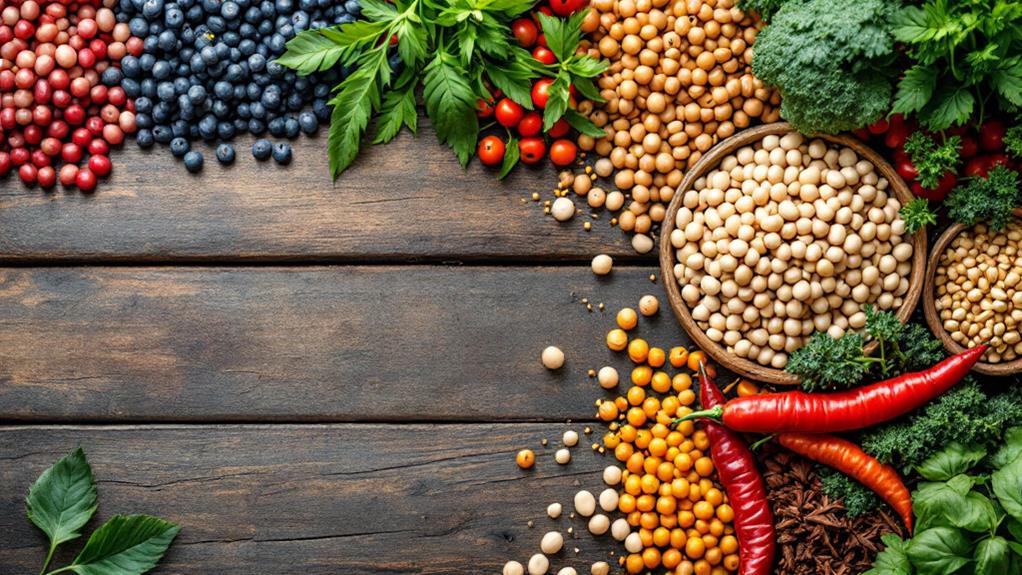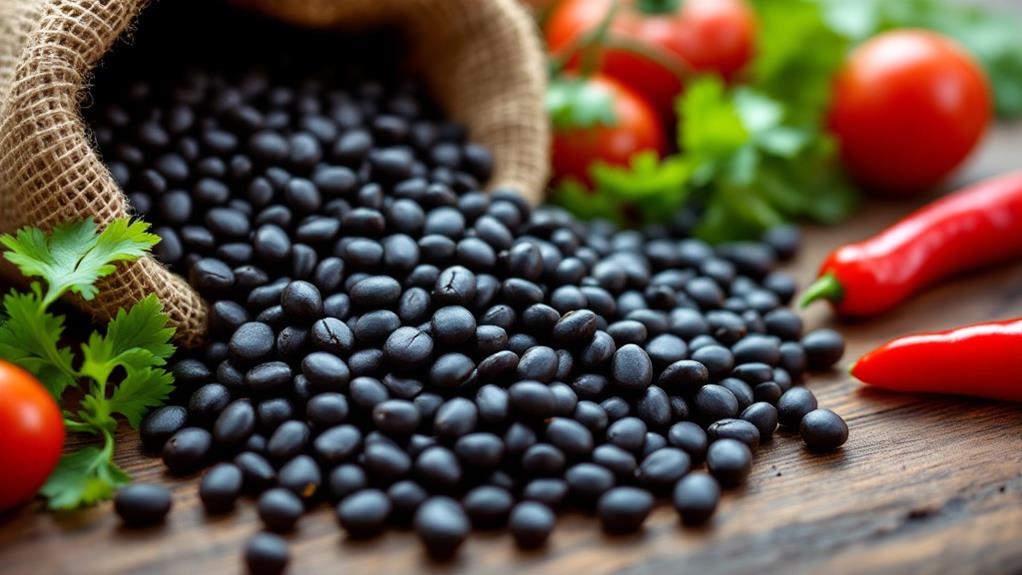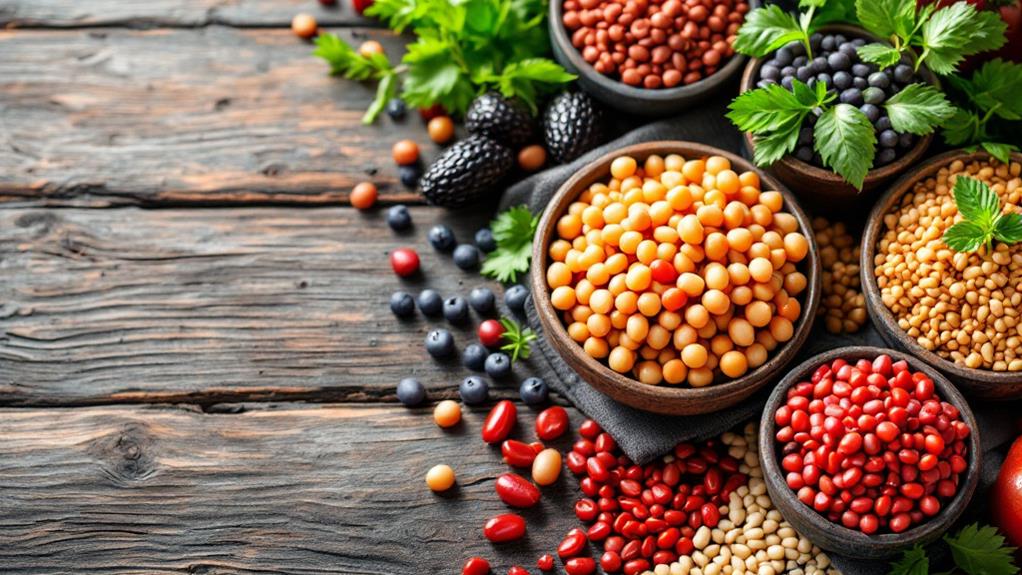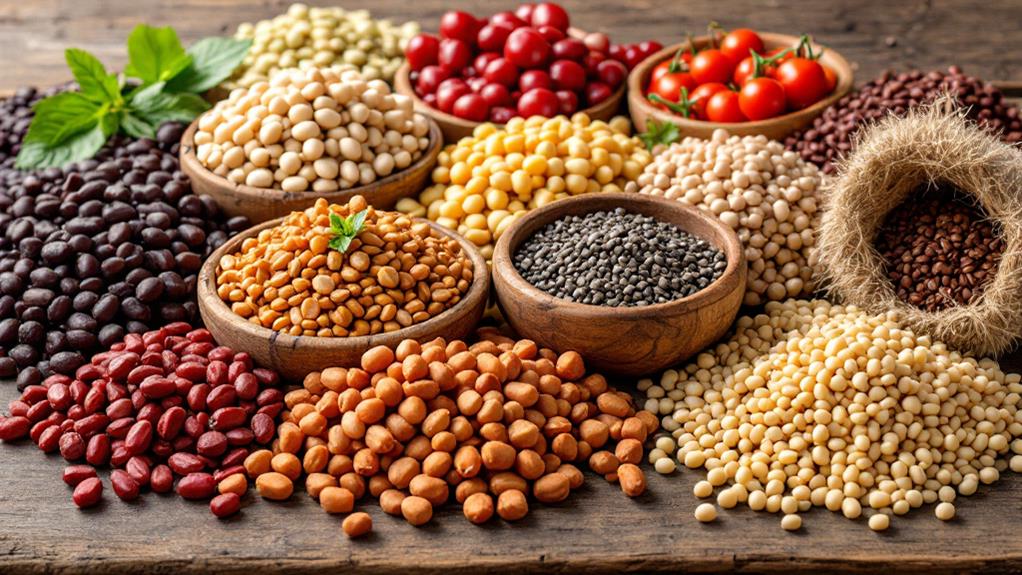Health Benefits of Beans: Why You Should Add Them to Your Diet
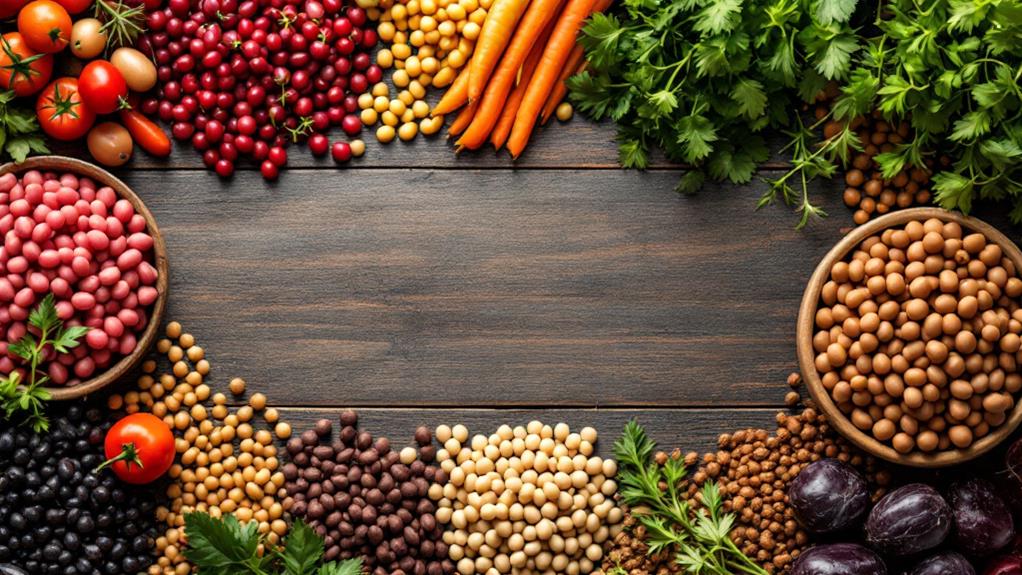
Beans should definitely have a spot in your diet due to their impressive health benefits. They're packed with protein and fiber, helping you feel full longer and aiding in weight management. With low fat and rich in vital nutrients like potassium, magnesium, and iron, they support heart health and can lower cholesterol. Their low glycemic index helps regulate blood sugar, which is great for managing type 2 diabetes. Antioxidants in beans fight oxidative stress, potentially reducing cancer risk. You can easily add beans to salads, soups, and more. There's a lot more to uncover about incorporating beans into your meals.
Nutritional Value of Beans
When you consider adding beans to your diet, you're choosing a powerhouse of nutrition. Beans are a fantastic source of plant protein, making them an ideal meat alternative with 15-25% protein content per serving. This high protein level supports muscle growth and repair, fitting seamlessly into any balanced diet. They also provide about 7-9 grams of dietary fiber per half-cup serving, which is essential for promoting digestive health and ensuring regular bowel movements.
Beyond fiber and protein, beans are low in fat yet rich in important vitamins and minerals like potassium, magnesium, folate, and iron, all of which play significant roles in maintaining your overall health. The antioxidants in beans, such as polyphenols, help combat oxidative stress, potentially lowering your risk of chronic diseases, including certain cancers. Furthermore, beans have a low glycemic index, which, combined with their high fiber content, aids in blood sugar regulation. This means they can be particularly beneficial for those looking to manage their blood sugar levels effectively. Including beans in your meals not only enhances nutritional intake but also supports long-term well-being.
Health Advantages of Beans
Beans offer a multitude of health advantages that make them a valuable supplement to any diet. Their high fiber content, with a single cup of black beans providing about 15 grams, plays an important role in promoting digestive health. This fiber supports regular bowel movements and can help lower cholesterol levels, reducing your risk of cardiovascular disease. Maintaining healthy blood pressure is another benefit, further protecting your heart.
For those managing blood sugar levels, beans can be particularly beneficial. With a low glycemic index, they're excellent for stabilizing blood sugar, which is especially useful for individuals with type 2 diabetes. Their rich composition of vital nutrients like folate, iron, and potassium, alongside potent antioxidants, contributes to general health and may even lower the risk of certain cancers.
Incorporating beans into your meals also supports weight management. The combination of high fiber and protein helps you feel fuller for longer, leading to reduced calorie intake. This can be a game-changer if you're aiming to control or lose weight. With their array of nutrients and health benefits, beans are an excellent choice for enhancing your diet and improving your overall well-being.
Ways to Prepare Beans
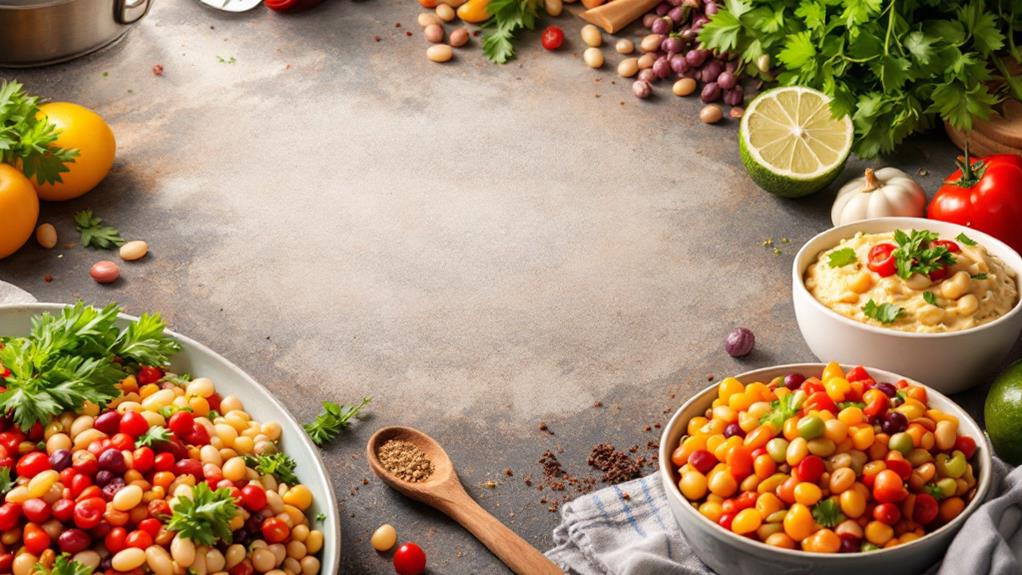
To fully enjoy the health advantages of beans, it's crucial to know the different ways to prepare them. Start with dried beans, which need a little more attention. Rinse them thoroughly and soak for at least 6 hours, or boil for 10 minutes before simmering to guarantee even cooking and reduce anti-nutrients. The cooking time for dried beans varies from 45 minutes to 2 hours depending on the type, but using a pressure cooker can greatly cut this time down.
Canned beans offer convenience and can be added directly to your recipes. Simply drain and rinse them to lower the sodium content by over 40%, making them a healthier option. Thanks to their high protein and fiber content, beans are an excellent choice for versatile meals.
Here are some preparation methods to take into account:
- Mashed beans: Use as a flavorful base for dips, spreads, or as a filling in tacos and burritos.
- Salads: Add beans for extra protein and fiber.
- Soups and stews: Boost heartiness with beans.
- Casseroles: Incorporate beans for added texture and nutrition.
These methods help you create a variety of low-sodium, nourishing dishes with beans.
Incorporating Beans Into Meals
While beans are already celebrated for their nutritional benefits, incorporating them into your meals can improve both flavor and health. Beans are a powerful supplement to your diet, offering a robust protein intake and high fiber content that supports weight management and satiety. By adding a half-cup serving of cooked beans, you introduce approximately 7-9 grams of dietary fiber and crucial nutrients like folate and magnesium into your meals.
Incorporating beans into your meal preparation is simple and rewarding. You can use them as a versatile meat substitute in soups, salads, and casseroles. This not only increases the protein and fiber content but also broadens your meal options while maintaining vital nutrient intake. Experimenting with different bean varieties such as black, kidney, or chickpeas allows you to investigate numerous flavors and textures.
Canned beans offer a convenient option for busy days. They retain their nutritional value and make meal preparation quick and easy. Just remember to rinse them to reduce sodium content by over 40%. Adding beans to your meals improves overall diet quality and can lead to better weight management, making them an irreplaceable part of any health-focused diet.
Choosing the Right Beans
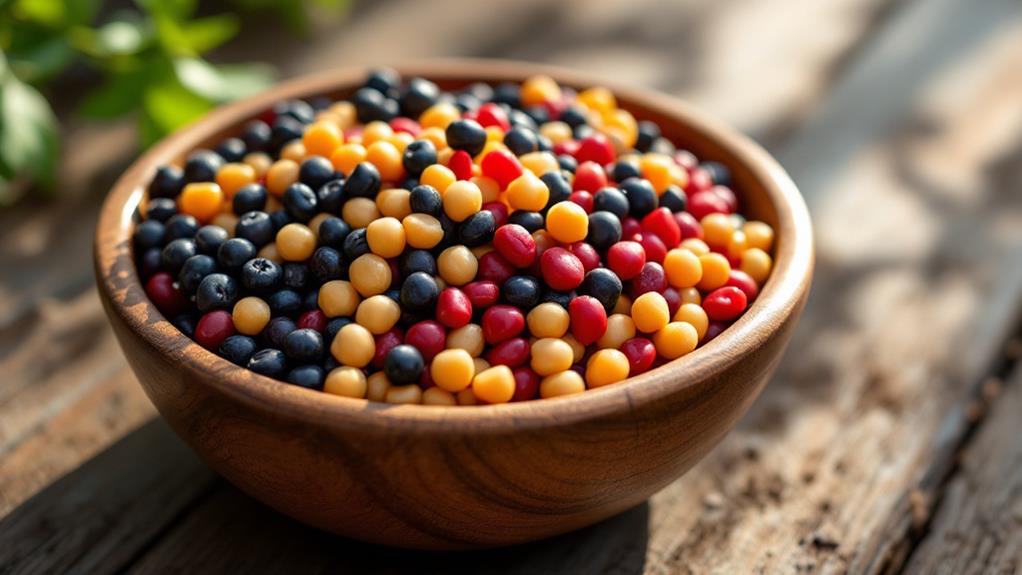
Exploring the variety of beans available can add both nutritional depth and exciting flavors to your meals. When choosing beans, consider popular varieties like black, kidney, pinto, and chickpeas. Each offers unique flavors and nutritional profiles, rich in protein, fiber, and crucial vitamins. Opt for low-sodium canned beans if you're looking for a quick meal solution. Rinsing canned beans can cut their sodium content by over 40%, making them a healthier choice.
Dried beans are more economical, boast a longer shelf life, and provide similar nutritional benefits as canned beans. They require soaking and longer cooking times, typically ranging from 45 minutes to 2 hours. However, using a pressure cooker can considerably reduce this time.
To get the most health benefits and nutrients, try incorporating a mix of different legumes into your diet. This not only improves flavor and texture but also optimizes the array of nutrients like antioxidants and fiber.
- Black Beans: Rich in fiber and protein, ideal for soups and salads.
- Kidney Beans: Great for chili, packed with protein and fiber.
- Pinto Beans: Perfect for refried beans, full of nutrients.
- Chickpeas: Versatile for hummus or stews, high in fiber and protein.

